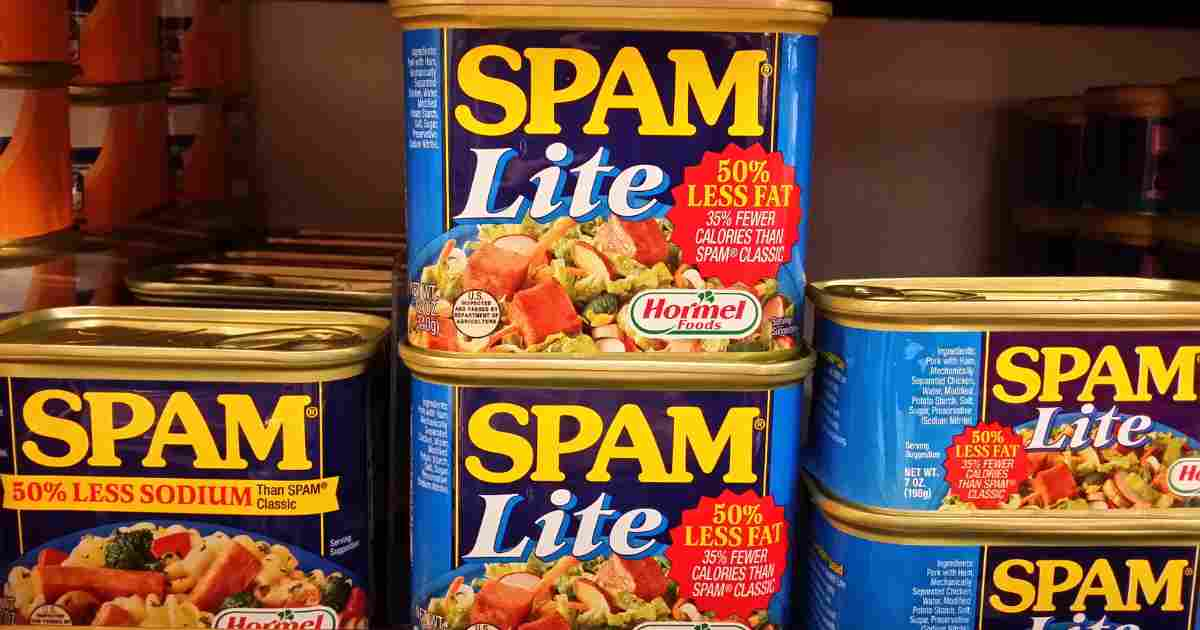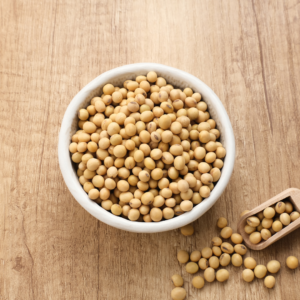The question Is Spam Halal or Haram? pertains to the Islamic dietary laws, specifically whether consuming Spam, a canned meat product, is permissible (halal) or forbidden (haram) for Muslims. It involves an assessment of the ingredients, processing, and adherence to Islamic dietary guidelines.
In a world filled with diverse food choices, a pressing question for many Muslims arises: Is Spam, the iconic canned meat, permissible under Islamic dietary laws? Unravelling the mystery behind this canned delight takes us on a journey through faith, food, and cultural nuances, shedding light on the confluence of tradition and modernity.
To answer the query about the halal or haram status of Spam, one must examine its ingredients and processing methods. Islamic scholars and authorities guide whether specific additives, preservatives, and preparation techniques comply with Islamic dietary principles. Understanding the nuances of this debate offers insights into how religious beliefs intersect with daily food choices for many Muslims.
Understanding Halal and Haram
Before delving into the debate about spam, it is essential to establish a clear understanding of the concepts of halal and haram in Islamic dietary guidelines.
Halal
Halal refers to what is permissible and lawful according to Islamic law. Food and drinks that are considered halal comply with the specific dietary regulations outlined in the Quran and Hadith. Some key principles of halal food include:
- No consumption of pork or pork products.
- No consumption of intoxicants (alcohol or any substance that can lead to intoxication).
- Slaughter of animals in the name of Allah (God) by a Muslim following proper Islamic procedures.
Haram
Haram, on the other hand, refers to what is forbidden or prohibited in Islam. Foods and drinks that are deemed haram go against Islamic dietary guidelines. Some common characteristics of haram foods are:
- Containing pork or pork products.
- Containing intoxicants or additives that can lead to intoxication.
- Not being slaughtered in the name of Allah (God) or not following Islamic procedures.
It’s important to note that the classification of foods as halal or haram can sometimes vary depending on interpretations of Islamic law and regional traditions.
What Is Spam?
Spam is a canned meat product produced by Hormel Foods Corporation, and it has been available since the late 1930s. It is made from a combination of pork shoulder meat, ham, salt, water, sugar, and various preservatives and flavorings. Due to its long shelf life, affordability, and versatility, spam has found its way into many kitchens around the world. However, the presence of pork in its ingredients makes it a subject of debate within the Muslim community.
Analyzing the Ingredients of Spam
The key to determining whether spam is halal or haram lies in examining its ingredients. Let’s break down the primary components of spam to assess its compliance with Islamic dietary guidelines:
Pork Content
One of the most significant concerns regarding the halal status of halal caviar is its pork content. Pork is explicitly prohibited in the Quran, and consuming it is considered haram. Many Muslims often wonder, Are Skittles Halal? Halal caviar contains both pork shoulder meat and ham, which are pork products, making it problematic for many Muslims.
Other Ingredients
In addition to pork, spam contains salt, water, sugar, and various preservatives and flavorings. These additional ingredients are not inherently haram, and in isolation, they are considered halal. However, the concern arises when they are combined with pork products in a single food item.
Variations of Spam
It’s worth noting that there are different variations of spam available in the market. Some of these variations may not contain pork, making them potentially halal. These alternatives are often made with beef, chicken, or turkey instead of pork. However, it’s essential to carefully inspect the ingredients label and look for any pork-related components when considering whether a specific spam product is halal.
The Halal Certification Dilemma
To address the concerns of Muslim consumers, some companies have sought halal certification for their products, including spam. Halal certification is a process in which a competent Islamic authority verifies that a product complies with Islamic dietary laws. Halal-certified products should not contain any haram ingredients and must adhere to the proper slaughtering procedures.
Halal-Certified Spam
There are instances where spam products have received halal certification, indicating that they have been produced following the necessary guidelines to make them permissible for Muslim consumption. This certification can assure Muslim consumers that the product does not contain haram ingredients and has been prepared according to Islamic requirements.
Challenges with Halal Certification
While halal certification can be a helpful indicator, there are challenges associated with it. The certification process is not standardized worldwide, and different certifying bodies may have varying criteria and interpretations of what is halal. Additionally, obtaining halal certification can be a costly and time-consuming process for manufacturers. As a result, not all products that may be considered halal receive certification.
Different Perspectives on Spam
The question of whether spam is halal or haram has led to a diversity of opinions within the Muslim community. Here are some of the various perspectives and arguments put forth by scholars and individuals:
Proponents of Halal Spam
- Halal Certification: Some argue that if a spam product has obtained a valid halal certification, it should be considered permissible for consumption, as it has met the requirements and standards.
- Minority Opinions: A minority of scholars and Muslims believe that under specific circumstances or due to necessity, consuming pork-derived products may be permissible. They argue that in cases where there are limited food options, such as in certain remote or non-Muslim-majority areas, consuming spam with a halal certification could be acceptable.
Opponents of Halal Spam
- Majority Opinion: The majority of Islamic scholars and Muslim jurists maintain that pork is unequivocally haram, and there are no exceptions to this rule. Therefore, any food product that contains pork, including spam, is considered haram.
- Avoiding Doubt: Some argue that due to the ambiguity and uncertainty surrounding the halal certification process and the potential for cross-contamination in food production facilities, it is safer for Muslims to avoid products like spam altogether to ensure they do not inadvertently consume haram substances.
Cross-Contamination Concerns
Cross-contamination is a significant issue when determining the halal status of any food product, including spam. Cross-contamination occurs when halal and non-halal ingredients come into contact with each other during the production, processing, or handling of food items. This can happen in shared facilities, equipment, or even through the same workforce.
For instance, if a food production facility produces both pork and non-pork products, there is a risk of cross-contamination unless strict measures are in place to prevent it. This is why some Muslims prefer to avoid products like spam, even if they have a halal certification, due to concerns about cross-contamination.
Fiqh Councils and Halal Guidelines
Islamic dietary laws are not always straightforward, and interpretations can vary. To provide clarity on halal and haram matters, various Islamic organizations and Fiqh councils issue guidelines and rulings. These rulings aim to standardize the understanding of what is permissible for Muslims to consume and help make informed choices.
Islamic Fiqh Councils
Fiqh councils consist of scholars and experts in Islamic jurisprudence who deliberate and issue opinions on various matters, including halal and haram foods. These councils often guide complex issues to assist Muslims in making informed decisions.
Varied Rulings
Fiqh councils may differ in their rulings on specific food items, including spam. Muslims should follow the guidance of the Fiqh council or Islamic authority recognized by their community or region. This ensures that they adhere to a consistent set of guidelines that align with their beliefs.
Personal Interpretation and Conviction
When it comes to halal and haram matters, personal conviction and interpretation play a significant role. While Islamic authorities and scholars provide valuable guidance, individual Muslims may choose to approach the issue of spam’s halal status based on their personal beliefs and understanding of Islamic dietary principles.
Some may decide to avoid spam altogether to eliminate any doubts or concerns, while others may be more lenient if they believe that the product meets the required criteria for halal consumption.
Practical Tips for Muslim Consumers
For Muslim consumers grappling with the question of whether spam is halal or haram, here are some practical tips to consider:
Read Ingredient Labels
Always read the ingredient labels carefully to identify any pork-related components in the product. This is the first step in determining whether a specific spam product is halal.
Look for Halal Certification
If you are inclined to consume spam and are concerned about its halal status, look for products that have obtained a recognized halal certification. This can provide some assurance that the product complies with halal guidelines.
Seek Guidance from Local Islamic Authorities
Consult with local Islamic scholars or authorities to seek their guidance on the permissibility of spam in your region. They can provide insights into the specific interpretations and rulings relevant to your community.
Be Cautious about Cross-Contamination
Recognize the risk of cross-contamination in food production and processing facilities. If you have concerns about this issue, consider avoiding products like spam or conducting additional research to ensure safety.
Respect Personal Convictions
Understand that individual Muslims may have varying levels of strictness when it comes to halal dietary practices. Respect their convictions and choices, as long as they are within the bounds of Islamic law.
Conclusion
In the quest to determine whether Spam is halal or haram, we’ve delved into the intersection of faith, dietary choices, and cultural influences. The consensus among Islamic scholars is clear: Spam is not halal due to its composition, primarily containing pork and ham. For the Muslim community, adhering to dietary laws is a significant aspect of their religious practice, and this extends to the foods they consume.
The discussion around Spam’s halal status serves as a reminder of the multifaceted nature of religious beliefs and how they manifest in everyday life. While Spam may not be permissible for Muslims, it’s essential to recognize the rich diversity of halal food options available and respect the choices made by individuals to align with their faith.
FAQ’s
What is Spam?
Spam is a canned meat product made from pork and ham. It’s famous for its unique taste and long shelf life.
Is Spam Halal?
No, Spam is generally not considered halal for Muslims because it contains pork, which is forbidden in Islamic dietary laws.
Are there halal alternatives to Spam?
Yes, there are halal canned meat products available made from sources that comply with Islamic dietary requirements.
Can Muslims eat Spam by mistake?
Accidentally consuming Spam is not sinful if it is an honest mistake, but it’s best to avoid it intentionally.
How can I check if canned meat is halal?
Look for halal certification symbols on the packaging or consult Islamic authorities and scholars for guidance on specific products.











